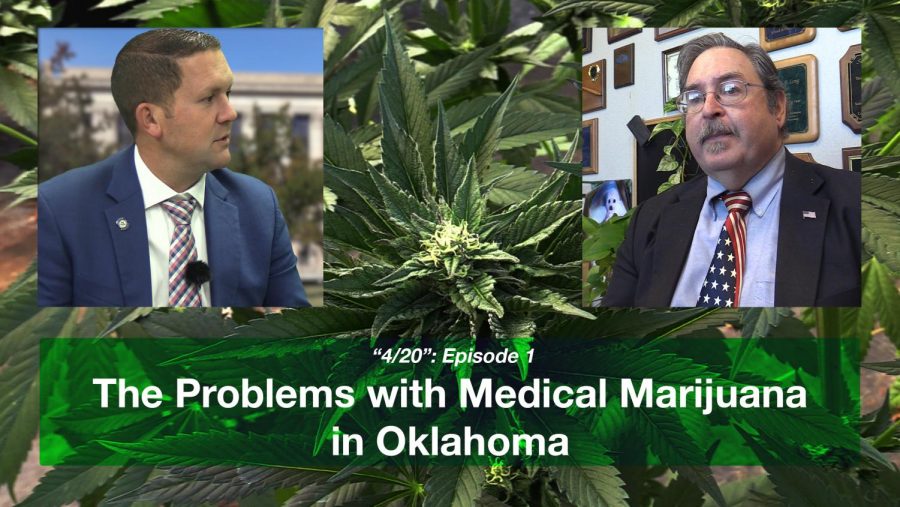“4/20”: The Problems with Medical Marijuana in Oklahoma, Ep. 1
Problems with Medical Marijuana, Episode 1
December 22, 2021
In a new series called “4/20,” The Southwestern Video Reporter Johannes Becht is covering the topic of marijuana in Oklahoma, its opportunities, its risks and its consequences. With the chances of having a petition for recreational legalization on the ballot in 2022, the intention is to create articles and videos that consist of a variety of different opinions and perspectives to help readers and viewers make up their own minds.
“The cat’s out of the bag, we won’t put it back in.” Anthony Moore (R) is Oklahoma House representative for District 57, which includes Custer County. As in many rural areas, local law enforcement struggles with the consequences of the legalization of medical marijuana that was approved by voters in 2018.
Moore calls it “Pandora’s Box” that had been opened. With a new petition already calling for recreational legalization, it clearer that Oklahoma is becoming more accepting of weed. Following the medical legalization, the cannabis business has experienced, and is still experiencing, an unprecedented boom in Oklahoma.
Almost 400,000 Oklahomans, about 10%, are in possession of a medical marijuana card, an national record. The Sooner State has 10 times more grow facilities than California, and the number of dispensaries per capita ranks among the highest in the country, if not the highest. It is no surprise that Oklahoma is called the “Wild West of Weed.”
What at first sight looks like a welcoming business opportunity, is also a reason to worry. A lack of regulation has led to the growth of the black market. At the beginning of November 2021, the Oklahoma Bureau of Narcotics said Oklahoma is now the No. 1 black market supplier of illegal marijuana in the country. Of the 8,500 grow licenses, 25% were run by criminal organizations from China, Russia and Mexico, as per OBN.
Moore: “Our standard of being a good neighbor to those around us is very high, and we are doing a very bad job at that right now. Law enforcement agencies from around the states are having to focus on ‘Hey, what do we do with Oklahoma?’ This is a problem, and that’s not where Oklahoma wants to be.”
One of the main priorities for Moore is to improve the situation in a way that “doesn’t limit the opportunities for Oklahomans who want to go into that business.”
Another problem is the very broad language that was used in the petition, State Question 788. Eventually, it ended up as a constitutional amendment for Oklahoma. Finding solutions without violating this amendment, and therefore the Constitution, is a difficult task.
The language in the bill also allows citizens to get a physician’s recommendation for any medical condition. This recommendation is a requirement for obtaining a medical marijuana card. What adds to that is that especially online doctors do not verify a patient’s actual need for cannabis as medical treatment, instead advertising with a “99% approval rate.”
Dr. Scott Long, a pharmacy professor who teaches substance abuse courses at SWOSU, said he was opposed to the way medical legalization was approached.
“We know that it has some very good medical benefits,” he said. “But there are a lot of claims made that it will help with other things as well, but we have no medical data. We have no scientific data with animal testing, we have no clinical data showing that it works. When the bill was passed, my opinion was ‘Yes, let’s approve it, but let’s approve it for the five things we know it works for.’”
Moore agreed: “There are definitely issues that marijuana can address and fix, but is it the best medicine? Is it creating more problems, is it masking the problem?”


